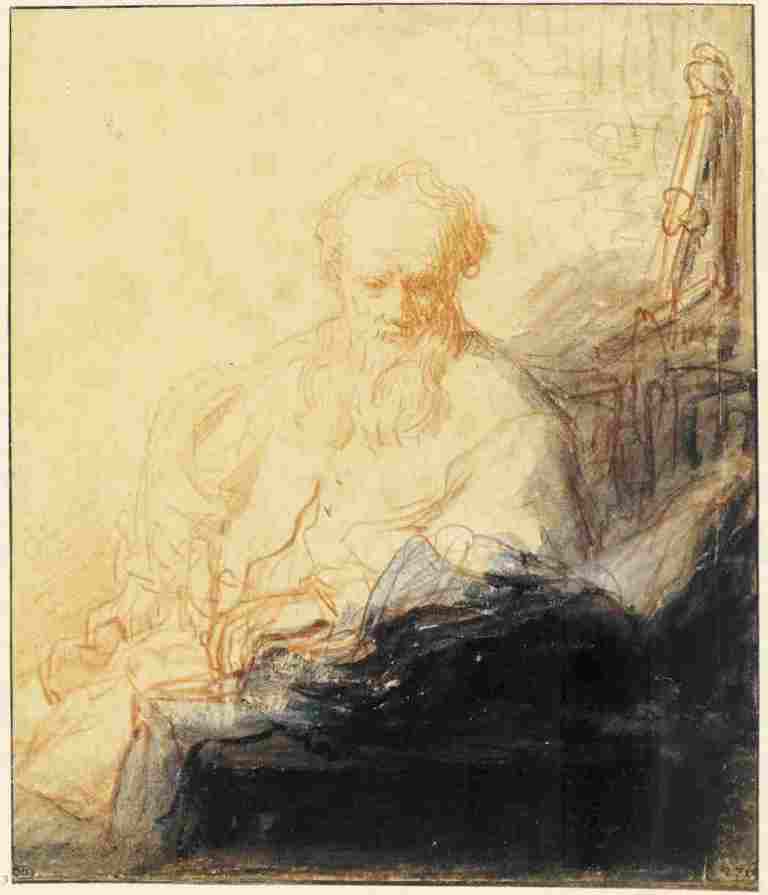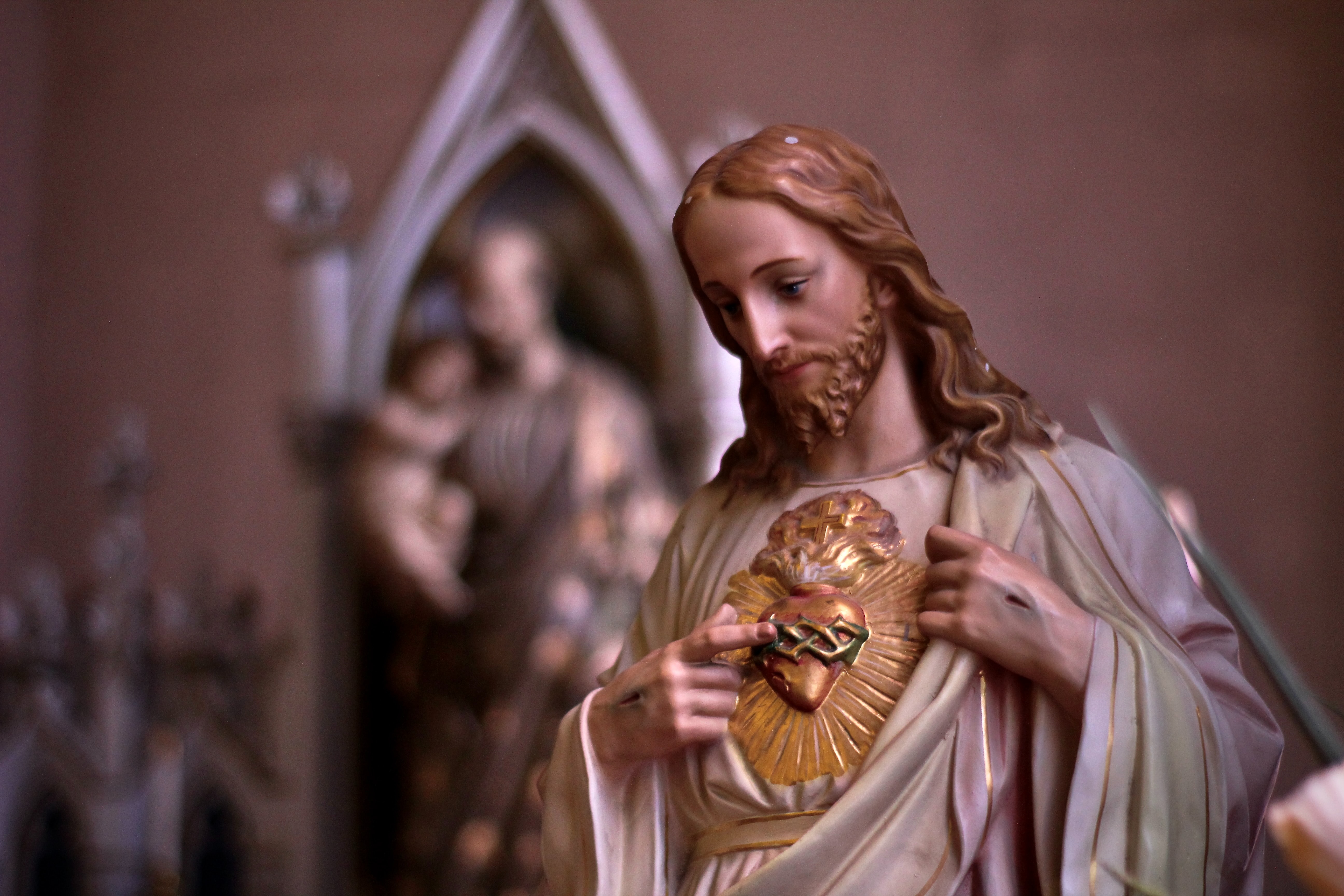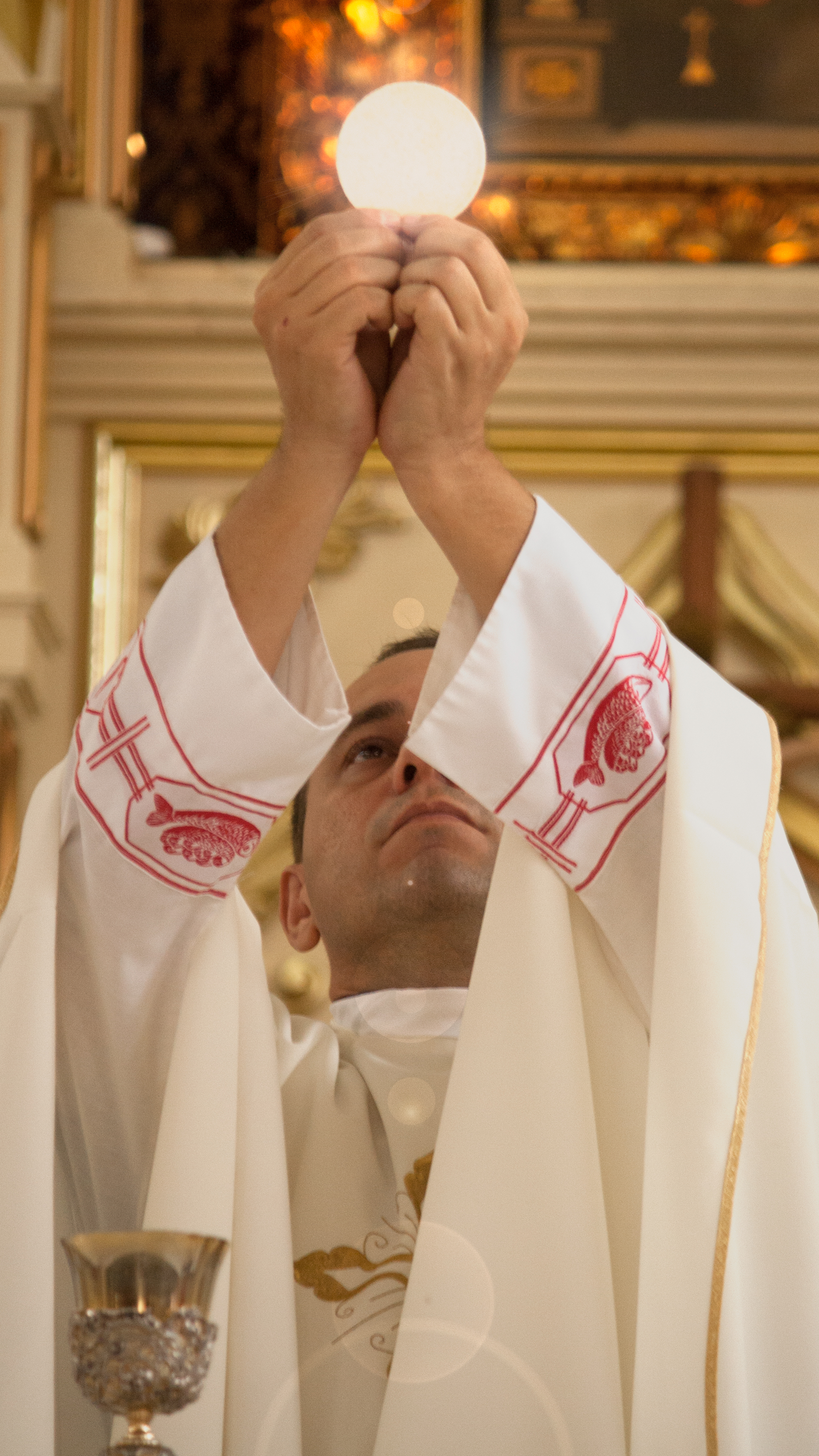I have been so blessed by these Gospel reflections. They cause me to pause and really delve into specific passages that perhaps I have glanced over before. They provide the Holy Spirit greater room to work within my spirit and allow me to see with new eyes the words and stories of Jesus. Today’s Gospel is one such passage.
There is much to be taken from this passage. The man is restored to right relationship with his family and community. Jesus has the power to speak with and rule over even the demons who plague us. The people react to Jesus’ work of power. I found myself particularly drawn to the mercy Jesus extended to the demons.
Jesus is the author and creator of the whole world. He has authority over the wind and sea, over life and death. Even these demons, fallen creatures though they were, were subject to Jesus’ authority. They pleaded with Jesus, recognizing who He was and realizing whatever He said they must do.
In that moment, Jesus could have denied them their pleas. From a flawed human perspective, perhaps we even think He should have. They were demons after all! Shouldn’t they get what they deserve after what they had done to this poor man and perhaps countless others? But Jesus is no tyrant, and His identity is not grounded on ultimate power (though to be sure He has it). Jesus, God Himself, is Love. God is Father, Creator, Giver of all good gifts, merciful, the list goes on.
Jesus deals justly with the demons. He does not permit them to simply go plague another human, trading one evil for another. But He does listen to them. They plead, “Send us into the swine. Let us enter them.” And Jesus allows it.
If Jesus, who died for love of you so that you could be with Him in heaven, will listen to the pleas of demons, how much more will He listen to your pleas? Each care, each cry, each joy and each sorrow you have today, Jesus hears them. He not only hears them but He reacts to them according to His love and design for you.
He sido tan bendecida por estas reflexiones del Evangelio. Me hacen pausar y realmente profundizar en los pasajes específicos que quizás haya visto antes. Brindan al Espíritu Santo un mayor espacio para trabajar dentro de mi espíritu y me permiten ver con nuevos ojos las palabras y las historias de Jesús. El Evangelio de hoy es uno de esos pasajes.
Hay mucho que podemos sacar de este pasaje. El hombre es restaurado a la relación correcta con su familia y comunidad. Jesús tiene el poder de hablar y gobernar incluso a los demonios que nos acosan. La gente reacciona a la obra del poder de Jesús. Me encontré particularmente atraído por la misericordia que Jesús extendió a los demonios.
Jesús es el autor y creador del mundo entero. Tiene autoridad sobre el viento y el mar, sobre la vida y la muerte. Incluso estos demonios, aunque eran criaturas caídas, estaban sujetos a la autoridad de Jesús. Le suplicaron a Jesús, reconociendo quién era y dándose cuenta de lo que dijo que debían hacer.
En ese momento, Jesús podría haberles negado sus súplicas. Desde una perspectiva humana defectuosa, tal vez incluso pensemos que debería haberlo hecho. ¡Después de todo, eran demonios! ¿No deberían recibir lo que se merecen después de lo que le habían hecho a este pobre hombre y quizás a muchos otros? Pero Jesús no es un tirano, y su identidad no se basa en el poder supremo (aunque ciertamente lo tiene). Jesús, Dios mismo, es Amor. Dios es Padre, Creador, Dador de todos los buenos dones, misericordioso, la lista continúa.
Jesús trata con justicia a los demonios. No les permite simplemente acosar a otro ser humano, intercambiando un mal por otro sino los escucha. Suplican: “Déjanos salir de aquí para meternos en esos cerdos.” Y Jesús lo permite.
Si Jesús, que murió por amor a nosotros para que pudiéramos estar con Él en el cielo, escucha las súplicas de los demonios, ¿cuánto más escuchará nuestras súplicas? Cada cuidado, cada llanto, cada alegría y cada dolor que tienes hoy, Jesús los escucha. No solo los escucha, sino que reacciona ante ellos de acuerdo con Su amor y diseño para nosotros.
 Kate Taliaferro is an Air Force wife and mother. She is blessed to be able to homeschool, bake bread and fold endless piles of laundry. When not planning a school day, writing a blog post or cooking pasta, Kate can be found curled up with a book or working with some kind of fiber craft. Kate blogs at DailyGraces.net.
Kate Taliaferro is an Air Force wife and mother. She is blessed to be able to homeschool, bake bread and fold endless piles of laundry. When not planning a school day, writing a blog post or cooking pasta, Kate can be found curled up with a book or working with some kind of fiber craft. Kate blogs at DailyGraces.net.
Feature Image Credit: Samira, www.pexels.com/photo/pigs-on-the-grass-field-5610060/


 Arthur Richardson is married to his wonderful wife, Gabby Richardson. Most of his work experience is in ministry. He was a retreat missionary in Wisconsin for two years and a youth minister for three years. He is now the Web Project Manager here at Diocesan, and loves it!
Arthur Richardson is married to his wonderful wife, Gabby Richardson. Most of his work experience is in ministry. He was a retreat missionary in Wisconsin for two years and a youth minister for three years. He is now the Web Project Manager here at Diocesan, and loves it!
 Dakota lives in Denver, CO with her husband, Ralph, and their two sons, Alfie & Theophilus. She is the Dean of Enrollment Management for Bishop Machebeuf High School where her husband also teaches. You can find Dakota at the zoo or a brewery with her family or with her nose in a book at home. For more of Dakota’s writing check out
Dakota lives in Denver, CO with her husband, Ralph, and their two sons, Alfie & Theophilus. She is the Dean of Enrollment Management for Bishop Machebeuf High School where her husband also teaches. You can find Dakota at the zoo or a brewery with her family or with her nose in a book at home. For more of Dakota’s writing check out 
 Deacon Dan Schneider is a retired general manager of industrial distributors. He and his wife Vicki have been married for over 50 years. They are the parents of eight children and thirty grandchildren. He has a degree in Family Life Education from Spring Arbor University. He was ordained a Permanent Deacon in 2002. He has a passion for working with engaged and married couples and his main ministry has been preparing couples for marriage.
Deacon Dan Schneider is a retired general manager of industrial distributors. He and his wife Vicki have been married for over 50 years. They are the parents of eight children and thirty grandchildren. He has a degree in Family Life Education from Spring Arbor University. He was ordained a Permanent Deacon in 2002. He has a passion for working with engaged and married couples and his main ministry has been preparing couples for marriage.
 David Dashiell is a freelance author and editor in Nashville, Tennessee. He has a master’s degree in theology from Franciscan University, and is the editor of the anthology
David Dashiell is a freelance author and editor in Nashville, Tennessee. He has a master’s degree in theology from Franciscan University, and is the editor of the anthology 


 Emily Jaminet is a Catholic author, speaker, radio personality, wife, and mother of seven children. She earned a bachelor’s degree in mental health and human services from the Franciscan University of Steubenville. She is the co-founder of
Emily Jaminet is a Catholic author, speaker, radio personality, wife, and mother of seven children. She earned a bachelor’s degree in mental health and human services from the Franciscan University of Steubenville. She is the co-founder of 

 Allison Gingras (
Allison Gingras ( 

 Susan Ciancio has a BA in psychology and a BA in sociology from the University of Notre Dame, with an MA in liberal studies from Indiana University. For the past 19 years, she has worked as a professional editor and writer, editing both fiction and nonfiction books, magazine articles, blogs, educational lessons, professional materials and website content. Thirteen of those years have been in the pro-life sector. Currently Susan freelances and writes weekly for HLI, edits for American Life League, and is the executive editor of Celebrate Life Magazine. She also serves as executive editor for the Culture of Life Studies Program—an educational nonprofit program for K-12 students. You can reach her at
Susan Ciancio has a BA in psychology and a BA in sociology from the University of Notre Dame, with an MA in liberal studies from Indiana University. For the past 19 years, she has worked as a professional editor and writer, editing both fiction and nonfiction books, magazine articles, blogs, educational lessons, professional materials and website content. Thirteen of those years have been in the pro-life sector. Currently Susan freelances and writes weekly for HLI, edits for American Life League, and is the executive editor of Celebrate Life Magazine. She also serves as executive editor for the Culture of Life Studies Program—an educational nonprofit program for K-12 students. You can reach her at 
 Christine Hanus currently lives in Upstate, NY. Though she enjoys writing and her work as a catechist, Christine is primarily a wife, mother, and more recently, grandmother!
Christine Hanus currently lives in Upstate, NY. Though she enjoys writing and her work as a catechist, Christine is primarily a wife, mother, and more recently, grandmother!